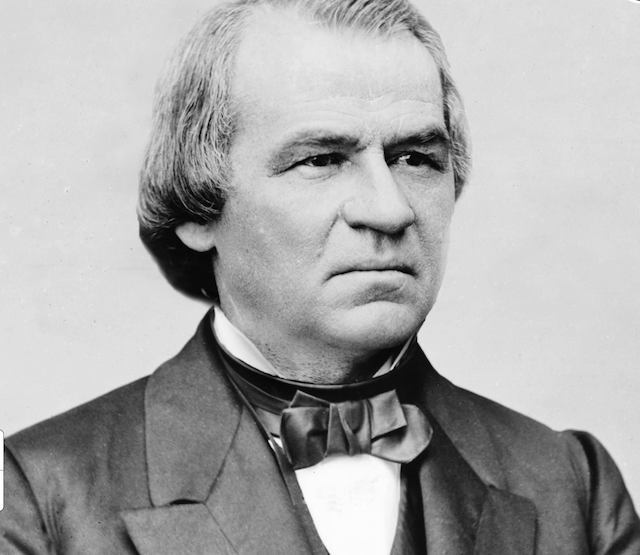
Brief Summary of Presidency
Following the assassination of President Abraham Lincoln, Andrew Johnson took office as the 17th President of the United States. Despite his integrity and honorability, Johnson is remembered as one of the most devastating presidents in U.S. history.
Early Career
In 1909, Johnson was born to poverty in Raleigh, North Carolina. At a young age, he apprenticed to a tailor until he ran away from his home state. He later opened his own tailor shop in Greeneville, Tennessee. There, he met and married his wife, Eliza McCardle and engaged in debates at the local academy. His excellence in public speaking led him to enter politics, where his skills exceeded his most highly trained and educated competitors. Before his election to Congress, Johnson served as mayor to his city. He then served as a member of both the House of Representatives and the Senate early in his political career. In those roles, he supported the homestead bill which would gift a farm to the country’s impoverished men.
Despite the secession of Tennessee, Johnson remained on the Senate. Consequently, he was loved in the North but resented in the South. His commitment to remaining in the Union made him the only sitting senator from a Confederate state who remained in his seat at the Senate, despite his states secession. President Abraham Lincoln appointed him as Military Governor of the state of Tennessee in 1862.
Soon after, Lincoln picked Johnson to be his running mate for his re-election, reasoning that Johnson was a candidate who would send the message of national unity. Lincoln was victorious and Johnson became his Vice President in 1864. Only one year into his term, President Lincoln was assassinated making Andrew Johnson the 17th President of the United States.
Presidential Tenure
President Johnson’s most notable agenda item was his Presidential Reconstruction of former confederate states. To carry out this goal, he instructed seceded states to hold conventions and elections in order to restructure their respective governments. Under his presidency, however, many southern states reinstated their old leaders, passed black codes, and deprived many freedmen of their civil liberties. Republicans in Congress, reasonably displeased by the actions of these states, refused to seat legislators from those states and proposed legislation that would override their discriminatory actions. President Johnson vetoed the proposed legislation, but Republicans overrode him, which became a pattern for the remainder of his presidential tenure. Johnson and all but one of the previously confederate states opposed the ratification of the Fourteenth Amendment, which would extend citizenship status to freedmen. In 1867, after Radical Republicans placed southern states under military rule for the second time, they also passed laws that would restrict the scope of President Johnson’s power. Allegedly, Johnson’s dismissal of Secretary of War Edwin M. Stanton was in violation of the Republican-ordained presidential restrictions. This action would lay the ground for his impeachment by the House of Representatives and near conviction by the Senate. In 1868, he was not re-nominated as the Democratic presidential nominee.
He returned to Tennessee after his presidency where he would become the only former president to serve as a senator. Only five months into his term, he passed away. Many historians remember President Johnson as one of the worst presidents in American history mainly based on his ruthless attempt to restrict the rights of African Americans





